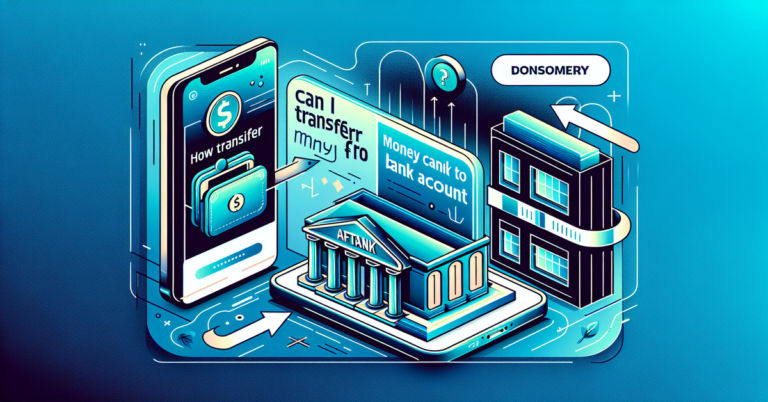You might not realize that joint bank accounts can be garnished, putting both account holders' finances at risk. When a creditor secures a court order, funds in these shared accounts can be frozen, leading to potential disputes and unexpected hardships for both parties. The impact varies greatly depending on state laws, with some providing certain protections. It's essential to understand how these laws work and what steps you can take to safeguard your finances, especially if you're sharing an account with someone else. What should you be aware of in this complex situation?
Understanding Joint Bank Accounts
Joint bank accounts allow two or more people to share financial resources and responsibilities, making it easier to manage shared expenses. They're a convenient way to handle household bills, joint savings, and even emergency funds. However, it's important to choose your co-account holders wisely. Trust is significant, as each person's actions can impact the account. You should also consider setting limits on withdrawals or establishing clear agreements about contributions and expenditures. Maintaining transparency with your co-account holders will help prevent misunderstandings and guarantee that everyone feels secure. Finally, always review your account statements regularly to catch any discrepancies or unauthorized transactions, as keeping a close eye on your finances is an essential step in protecting your shared resources.
What Is Garnishment?
Garnishment is a legal process that allows creditors to collect debts directly from your wages or bank accounts, which can greatly impact your finances. When a creditor wins a judgment against you, they can request a court order to garnish your income or funds. This means a portion of your paycheck or your bank account balance is taken to satisfy the debt. It's important to understand that garnishment can happen without your consent, so staying informed about your financial obligations is significant. If you're facing potential garnishment, consider speaking with a financial advisor or legal professional to explore your options. Protecting your financial safety is crucial, and knowing your rights can help you navigate this challenging situation effectively.
How Garnishment Affects Accounts
When a creditor garnishes funds from your account, it can considerably impact both your finances and any co-owners of a joint account. You might find that a significant portion of your available funds is suddenly unavailable, which can disrupt your budgeting and lead to missed payments. If you share the account with someone else, they could also be affected, as their funds may be at risk too.
It's essential to communicate with your co-owner about the situation and consider alternative arrangements for managing your finances. Additionally, you may want to consult a financial advisor or attorney to explore options for protecting your assets. Understanding the implications of garnishment can help you safeguard your financial future.
State Laws on Garnishment
Understanding state laws on garnishment is essential, as they can vary greatly and impact how funds in your account are treated. Each state has its own rules regarding which debts can lead to garnishment and what protections are in place for joint accounts. For instance, some states may allow creditors to garnish the entire balance of a joint account, while others may protect a portion of it. It's important to know your state's specific laws, as they can greatly affect your financial safety. You should also consider how your account is structured and the ownership of the funds within it. Staying informed can help you take proactive steps to safeguard your assets from potential garnishment issues.
Exemptions for Joint Accounts
Exemptions for joint accounts can vary, but many states offer certain protections that prevent creditors from seizing the entire balance if one account holder's debts are in question. For instance, some states may allow a specific percentage of the funds to remain untouched, especially if you can prove that your contributions are distinct from the debtor's. It's important to document your deposits and expenses, as this evidence can help in disputes. Additionally, while garnishment laws differ, it's vital to know that certain funds, like Social Security or disability payments, might be exempt from garnishment. Always check your state's laws to verify you understand your rights and the protections available to safeguard your joint account.
Protecting Your Assets
To effectively protect your assets in a joint bank account, it is crucial to be proactive about how funds are managed and documented. Here are some strategies to contemplate:
| Strategy | Description |
|---|---|
| Keep Separate Accounts | Maintain individual accounts for personal funds. |
| Track Contributions | Document who deposits what to clarify ownership. |
| Set Clear Agreements | Agree on how funds will be used or withdrawn. |
| Regularly Review | Monitor account activity to catch any issues early. |
Steps to Take if Garnished
If your joint bank account is garnished, it's important to act quickly to protect your funds and clarify ownership. First, review the garnishment notice carefully to understand the reason and the amount involved. Next, gather documentation proving your ownership of the funds in the account. If you believe the garnishment is unjust, consider contacting the creditor or a legal expert to discuss your options. You may also want to file a claim of exemption with the court, especially if the funds are from sources like Social Security or disability benefits. Finally, keep communication open with your joint account holder to prevent misunderstandings and guarantee both parties are informed about the situation. Taking these steps can help safeguard your financial well-being.
Communicating With Account Holders
Open and honest communication with your joint account holder is essential during a garnishment situation. It's important to discuss how the garnishment affects both of you and what steps you can take together. Start by sharing your concerns and feelings openly, making sure to listen to their perspective as well. This can help ease any tension and build trust. Establishing a plan to manage the account moving forward is critical. You might want to think about setting aside funds for necessary expenses, ensuring both parties feel secure. Remember, staying informed and working as a team can help you navigate this challenging time. Transparency will protect your interests while also fostering a supportive environment.
Legal Advice and Resources
Seeking legal advice is essential when dealing with garnishment issues related to joint bank accounts. It's vital to understand your rights and responsibilities, especially since the account may be subject to claims from creditors. Consulting with a lawyer who specializes in financial law can help clarify your situation and provide strategies to protect your assets. Additionally, legal aid organizations can offer resources if you're facing financial hardship. You should also gather relevant documents, like account statements and any court orders, to discuss with your attorney. Remember, timely legal advice can greatly impact the outcome, so don't hesitate to seek help if you find yourself in a garnishment predicament. Your financial safety and peace of mind depend on it.
Alternatives to Joint Accounts
Considering alternatives to joint accounts can help you maintain better control over your finances while still allowing for shared expenses. One option is to use separate accounts for personal finances and a shared account specifically for joint expenses, like bills or groceries. This way, you can monitor your individual spending while ensuring shared costs are covered.
Another option is to use a budgeting app that allows you to track shared expenses without merging accounts. You might also consider creating a family trust or fund for larger shared goals, providing a layer of security and oversight.



